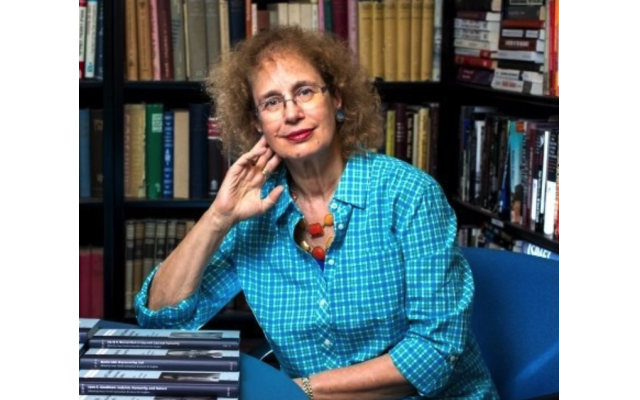25th Tenenbaum Lecture Focuses on Climate Change
Professor Hava Tirosh-Samuelson will speak on “Judaism and Climate Change: Environmental Ethics and Social Activism.”
Emory University’s Tam Institute of Jewish Studies has chosen the subject of climate change for its 25th anniversary Tenenbaum Family Lecture.
On March 21, Hava Tirosh-Samuelson, director of Jewish Studies and professor of Modern Judaism at Arizona State University, will speak on “Judaism and Climate Change: Environmental Ethics and Social Activism.”
Ahead of the lecture, the AJT spoke with Tirosh-Samuelson on the Jewish dimensions of environmentalism, Zionism and the potential short- and long-term effects of Russia’s invasion of Ukraine.
AJT: What does Judaism have to say about our relationship to the environment?
Tirosh-Samuelson: Judaism is actually an exceedingly environmentally conscious religion. The Hebrew Bible, in my view, harbors deep ecological wisdom. You simply cannot read the Bible and not pay attention to nature. But also, you cannot read the Bible without paying attention to the duties of human beings toward the natural world. Environmentalism is not a marginal idea in Judaism. On the contrary, nature is very central to Jewish self-understanding. We just need to pay attention to it. We need to recover it. We have the resources within our tradition to address the environmental crisis.
AJT: How has the history of the state of Israel influenced these ideas?
Tirosh-Samuelson: Zionism in Israel, in a very deliberate way, attempted to change the attitude of Jews toward the natural world. It’s absolutely correct to say that nature stands at the very core of the Zionist revolution, and I’m part of that. I was born in Israel and grew up in a kibbutz; I would put it this way: that the Zionists considered many Jews to be actually somewhat lacking because of the disconnectedness to the natural world. In the kibbutz you live and you work off the land and you are close — very, very close to the natural world. You don’t have this kind of alienation and distancing that you experience, especially in urban life. Jews had to relearn and recreate the biblical past. The biblical past was all about agriculture. Zionism was an attempt to bring the Jews not just to the Land of Israel, but to bring the Jews back to nature.
AJT: How does all this relate to your search for solutions to the climate emergency you have mentioned?
Tirosh-Samuelson: I consider my kibbutz background very relevant to my love of nature, to my understanding of the importance of nature, to human spirituality, to human well-being, human happiness, if you will. It’s very much a part of who I am. So, if you ask me, “where do you start?” I would start with the awareness that something went awry in our relationship with nature. But I don’t want to be just about despair or just about depression, even though despair can be one source of inspiration. So how do we retain our hope and how do we nourish it and perpetuate it? What’s at stake is really the future of Planet Earth. And this is not an exaggeration.
AJT: We are in the midst of an invasion of Ukraine and some fear continuing global instability. How does the political situation in the world relate to your concerns about climate change?
Tirosh-Samuelson: The Ukraine situation brings in another important aspect, and that’s the aspect of warfare. I believe war will happen more and more and definitely in the Middle East, for instance, because water is going to be, eventually, in short supply. So we’re going to have many, many more refugees, which we might call climate refugees. Either because of war, or because of lack of natural resources, people are going to be on the move. So, to keep the planet habitable is very much connected to the issues of war and peace.
AJT: Some might say that all these developments are so immense and difficult to control that they are leading us to a cataclysm. What do you think?
Tirosh-Samuelson: The most recent report by the UN’s Intergovernmental Panel on Climate Change, which came out at the end of February, tells us that the problem is worse than was even anticipated. I am hesitant to use the word cataclysmic because that kind of invokes or resonates with people who think in apocalyptic terms. A lot of people, if you’re thinking in those terms, will say, “it’s out of my hands, so I might as well do nothing.” That’s why I’m bringing to mind more hopeful possibilities of a revival, a renewal of greening. It’s the whole metaphor of greening everything. Everything we’re doing can be done with the green color in mind, shall we say, or the desire to do differently and to do it better. For 50 years at least, we didn’t do it. So now we’re running out of time and that’s the tragedy. But I think that we should avoid becoming paralyzed by the immensity of the problem.

The Tenenbaum lecture at Emory is free and open to the public. Register at https://www.surveymonkey.com/r/ZMS3JR8.




comments